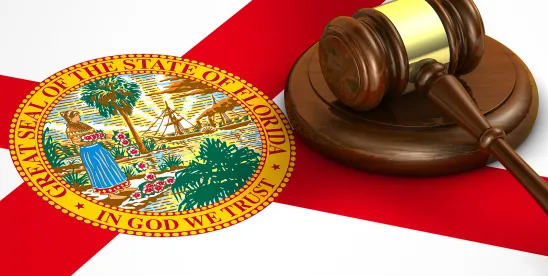Florida may have sidestepped some of the hardest Medicaid hits, but capped payment programs and tighter federal rules are closing in.
The newly signed “One Big Beautiful Bill” is shaking up Medicaid across the country, locking in more than $1 trillion in federal spending cuts over the next decade. Hospitals nationwide are bracing for the fallout – but in Florida, the outlook is a little more complicated.
Yes, Florida fares better than most. As a non-expansion state, it can sidestep the tough choices other states now face in how to finance covering the Medicaid expansion population, primarily able-bodied non-disabled adults added under the Affordable Care Act (ACA). However, Florida hospitals still face significant challenges, particularly as long-standing funding mechanisms as subject to new federal limits.
Nationally, hospitals are projected to lose around $665 billion in Medicaid payments from FFY 2025 to FFY 2034, a roughly 18% drop. And much of it focuses on expanding populations and programs, but some cuts apply across the board.
The new law makes many CMS reforms permanent, especially those related to State Directed Payments (SDPs). CMS has been incorporating these changes into waiver agreements for years, but now they're set in law and no longer open to negotiation.
Here's what Florida hospitals are dealing with:
No more expanding provider taxes
Florida can't raise rates or expand existing provider taxes, which limits the state's ability to use local dollars to fund Medicaid.
New caps on payment programs
Any new state-directed payment (SDP) programs not yet approved or submitted must keep rates below 110% of Medicare – goodbye, flexibility.
A slow funding squeeze
Existing payment programs exceeding federal limits will be ratcheted down by 10% each year until they hit the new cap.
New rules on who qualifies
Grandfathering protections only apply to programs fully approved or submitted. Additionally, the federal government changed the definition of "rural hospital," which may cause some providers to lose protections they've relied on.
Tighter restrictions on targeted payments
Rules are now stricter for programs directing payments to specific providers. If it’s not broadly redistributive, it may not be allowed.
Though efforts to rein in SDPs have spanned multiple administrations, including bipartisan discussions dating back to President Obama, the numbers speak for themselves. The Medicaid and CHIP Payment and Access Commission (MACPAC) reports approved spending on SDP jumped from $26 billion in 2020 to over $110 billion as of August 2024. However, the across-the-board limitations will have a drastic impact on the healthcare economies of states and providers.
Florida may have avoided being the target of the Medicaid reforms, but it, too, is losing a vital tool to help keep the system afloat. The very programs designed to help bridge funding gaps for low-income and uninsured populations are being scaled back or locked in at lower levels, and for Florida’s Medicaid program, the most vulnerable communities could feel the brunt.




 />i
/>i
